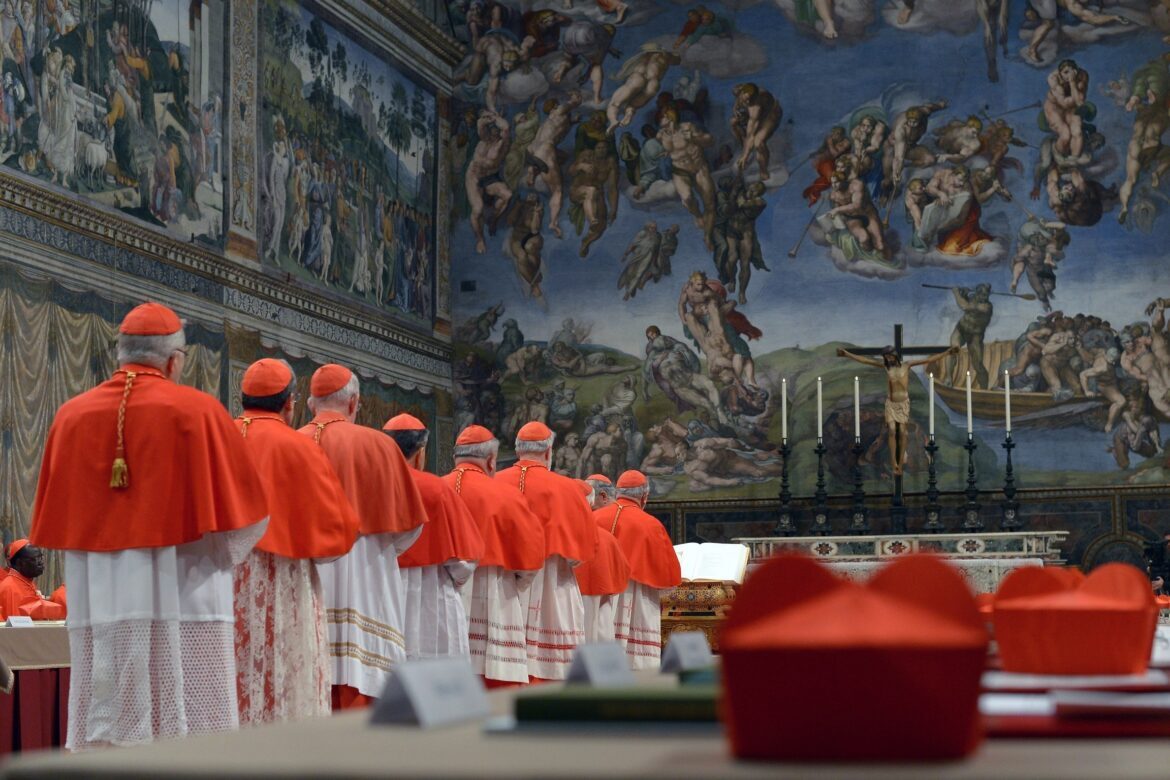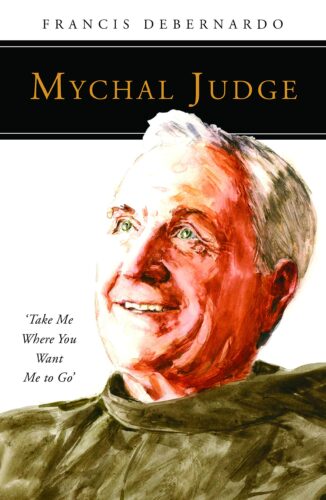Editor’s Note: For more Outreach coverage on the election of Pope Leo XIV:
What does the election of Pope Leo XIV mean for LGBTQ Catholics?
Chicago-born cardinal elected Pope Leo XIV, pays homage to Pope Francis
With the conclave set to begin on Wednesday, speculation about who will be the next leader of the Catholic Church, and whether he will seek to continue the pastoral aims of Pope Francis, reverse course or split the middle, will finally come to an end, perhaps sometime later this week.
Ever since the pope’s death on April 21, journalists, church watchers and ordinary Catholics have tried to surmise who the 133 cardinals gathered in Rome to elect a new pope have in mind to succeed Francis. While some cardinals have gone on the record to say what they are looking for in a future pope, most of the discussion has taken place behind closed doors in recent days, so few actually know what’s in store for the conclave.
As Vatican analyst Thomas Reese, S.J., said in a recent column at Religion News Service, “Don’t believe anything you read about who is going to be the next pope…. Conclaves have a way of surprising us.”
The names of several cardinals have appeared on multiple lists of men considered to be papabili, which my colleague at America Media Colleen Dulle noted are constructed with an eye toward age, geography and Vatican politics.
Father Reese wrote that no matter who is elected, it will take a few months before the world has a good understanding of his views and priorities. As it relates to LGBTQ issues, this might be especially important. After all, in the days following the election of Pope Francis, journalists tended to focus on the more traditional views he had expressed as archbishop of Buenos Aires, and it wasn’t until more than four months after his election that Francis uttered the phrase, “Who am I to judge?” and showed a new posture on these issues.
That said, several leading candidates have expressed thoughts on LGBTQ issues in the past, and below is a round-up of a handful of them.
Cardinal Luis Tagle, The Philippines
One of the leading contenders for the papacy in recent years, according to several journalists, is the 67-year-old Filipino, Cardinal Luis Tagle. Sometimes described as “the Asian Francis,” the cardinal appears on nearly every list about possible successors to Pope Francis. He is widely viewed as a friend to the LGBTQ Catholic community, with one LGBTQ publication even calling him “the gay internet’s favorite papal candidate.” Like Francis, Cardinal Tagle has upheld traditional church teaching when it comes to sexuality and marriage, but he’s shown a willingness to embrace the pope’s pastoral outreach to the LGBTQ community.
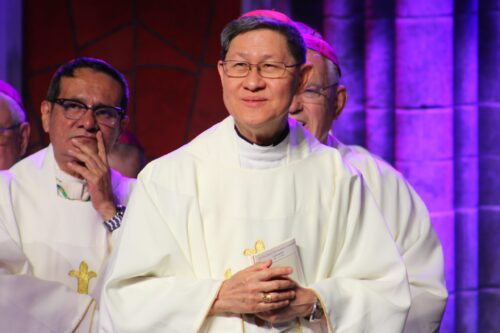
According to a recent profile in The New York Times, while studying at the Catholic University of America in the 1980s, the future cardinal would regularly visit people with AIDS at a local hospice.
Cardinal Tagle, media savvy and inclined to display his emotions openly, lamented in 2015 that “harsh words” had been used against “gays and divorced and separated people, the unwed mothers, etc.,” which he said had “led to their isolation from the wider society.”
In 2019, Cardinal Tagle lent his name to an online project meant to make people from various groups feel more welcome in the church, including LGBTQ people. Dubbed the Lazarus Project, the social media campaign drew condemnation from some U.S. Catholics for its efforts to welcome LGBTQ people, according to a recent profile in Esquire magazine.
Cardinal Pietro Parolin, Italy
The Vatican’s secretary of state under Pope Francis, Cardinal Pietro Parolin, 70, was something of a favorite going into the conclave, though several news reports in recent days suggest his luster may be lost.
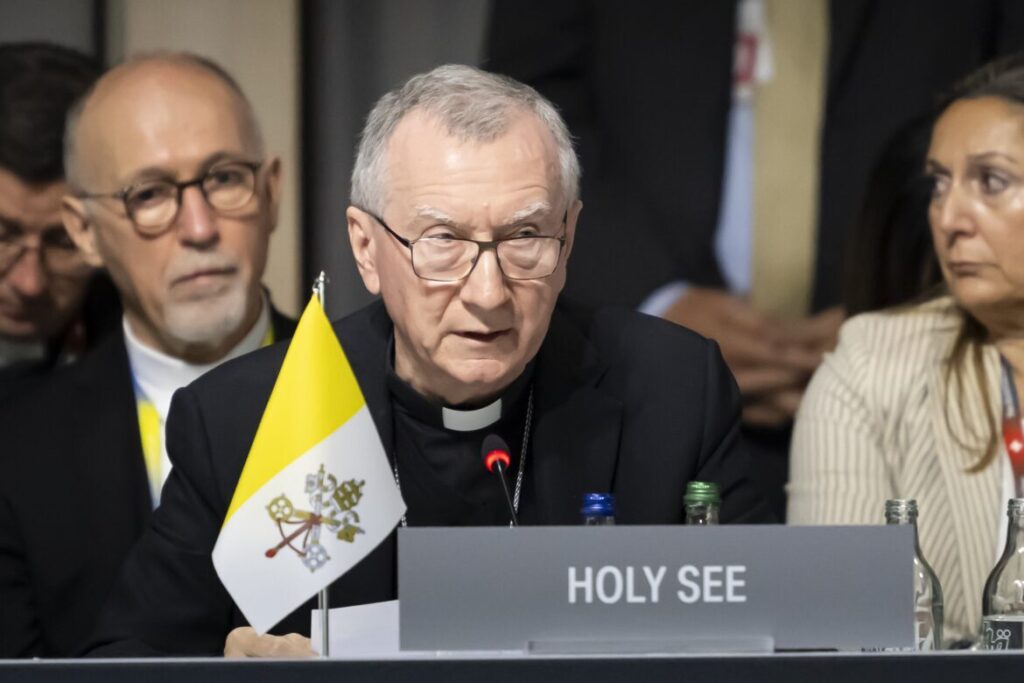
In 2023, Cardinal Parolin dismissed the disproven notion that homosexuality played a factor in the church’s sexual abuse scandal, writing that such a link is a “serious and scientifically untenable association.”
More broadly, like Pope Francis, Cardinal Parolin has used harsh words in describing “gender ideology,” a phrase that often includes critiques of transgender people. Speaking to the United Nations last year, Cardinal Parolin described “gender ideology” as “extremely dangerous because it nullifies differences in its claim to make everyone equal.”
Cardinal Robert F. Prevost, United States
Cardinal Prevost was born in Chicago but spent 20 years living and ministering in Peru, where he was made a bishop and became a naturalized citizen. The head of the Vatican Dicastery for Bishops, the 69-year-old Augustinian friar is viewed by some as an alternative for cardinals seeking to elect a Vatican insider but who have grown weary of Cardinal Parolin.
Because the cardinal has given few interviews over the years, not much is known about his views on a range of hot-button church issues.
According to a profile by Vatican reporter Christopher White in the National Catholic Reporter, Cardinal Prevost is a strong supporter of synodality, a key priority of the Francis papacy, and in a 2023 interview with Vatican News, he said the church needs “to really listen to the Holy Spirit and the spirit of truth-seeking that lives in the Church.”
On LGBTQ issues, The New York Times reported this week that in 2012, a year before the election of Pope Francis, Cardinal Prevost expressed disappointment that some Western media held “sympathy for beliefs and practices that are at odds with the gospel,” in particular, the “homosexual lifestyle” and “alternative families comprised of same-sex partners and their adopted children.”
Cardinal Pierbattista Pizzaballa, Italy
Cardinal Pizzaballa, the 60-year-old Latin Patriarch of Jerusalem, has avoided commenting on many hot-button topics in the church, including LGBTQ issues.
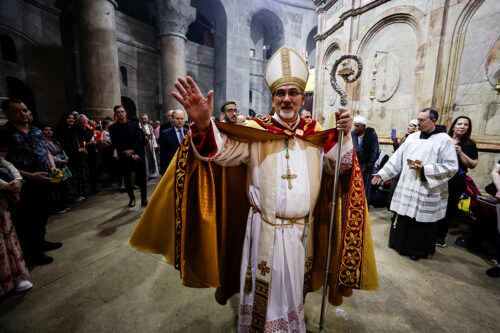
As the shepherd of Catholics in the Holy Land, the cardinal has tried to build bridges with a range of constituencies, and according to a recent profile in Crux, he is well-respected “among Israelis, Palestinians, Jordanians and Egyptians.”
Created a cardinal in 2023, Cardinal Pizzaballa’s views on many church issues are not widely known, which some analysts think could help his chances to become pope.
“Where he might stand on, say, the blessing of people in same-sex unions or the ordination of women deacons is something of a mystery,” wrote Crux’s John L. Allen, Jr.
Cardinal Péter Erdő, Hungary
A favorite among Catholics with more traditional cultural views, Cardinal Peter Erdő, 72, is viewed by some as a compromise candidate.
While the cardinal has been measured in the language he uses about sensitive topics, he has hewed to a more traditional understanding of Catholic doctrine, which sometimes put him at odds with the late pope.
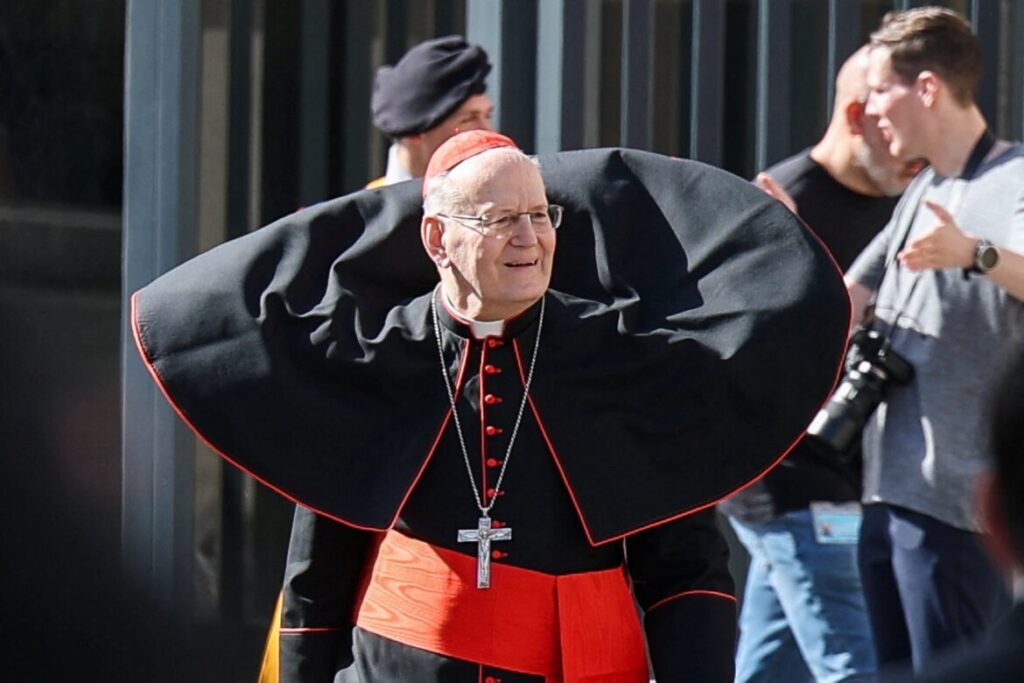
In an intervention at the start of the 2015 Synod on the Family, during which the issue of Communion for divorced and remarried Catholics, as well as homosexuality, were hotly debated, Cardinal Erdő lamented “the current tendency to pass off those things which are simply desires, often selfish ones, as true and proper rights, while denying the basic objective of all law, must be avoided.”
According to Vatican commentator John L. Allen Jr., “No matter how friendly and diplomatic Erdő may be, his election would nonetheless inevitably be taken as a negative verdict on the Francis papacy.”
Cardinal Matteo Zuppi, Italy
Cardinal Zuppi, 69, is the archbishop of Bologna and was close to Pope Francis. As president of the Italian bishops conference, the cardinal was a vocal proponent for several issues important to the late pope, including immigration and speaking out for the poor. Francis asked Cardinal Zuppi to be his representative in efforts to bring peace to Ukraine and the cardinal has also made several welcoming gestures to the LGBTQ Catholic community.
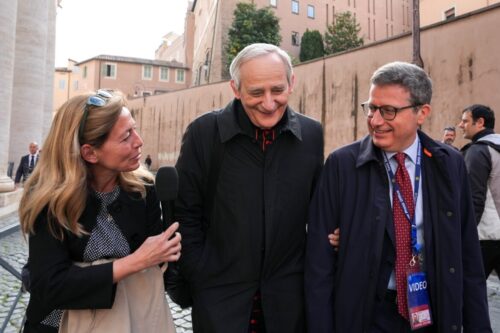
The cardinal authored the introduction to the Italian version of Building a Bridge, by Outreach Founder James Martin, S.J., in 2018. The cardinal praised Father Martin’s attempts to foster dialogue, warning that the alternative, “risks causing a great deal of suffering, makes people feel lonely, and often leads to the adoption of positions that are both contrasting and extreme.”
In an interview in 2020, the cardinal said that gay people must be looked at the same as any other people.
“When communities will truly begin to look at people as God looks at them, then homosexual people—and everybody else — will begin to feel, naturally, a part of the ecclesial community,” he said.
Cardinal Zuppi said during that same interview that one’s sexual orientation is not chosen and that it is an integral part of a person’s identity and on the issue of blessings for same-sex couples, he defended the pope’s efforts from detractors, saying that it placed the church “on the horizon of mercy.”
Cardinal Mario Grech, Malta
The prelate charged with organizing the Synod on Syondality, Cardinal Mario Grech, is a candidate whose election would be seen as an affirmation that cardinals hope to cement Francis’ legacy.
The 68-year-old cardinal used an address in 2014 at the Synod on the Family to urge the church to listen to the realities of Catholic family life.
“I must confess to facing the urgency of this need while listening to families of homosexuals as well as to the same persons having such an orientation and who feel wounded by the language directed towards them in certain texts, for instance in the catechism,” he said, according to a recent profile in the National Catholic Reporter.
While Cardinal Grech has been portrayed as a “compromise candidate,” someone who could appeal to many Catholics, he has expressed a certain openness to the LGBTQ community. According to The Catholic Herald, Cardinal Grech talked about the importance of accompaniment in past remarks.
“If someone comes to me, asking me for help to discover Jesus Christ…he or she could be homosexual, and even in a homosexual relationship. It doesn’t matter. I will not impede that person; on the contrary I would help. The last thing I would do is take up a position against that person,” he said.

